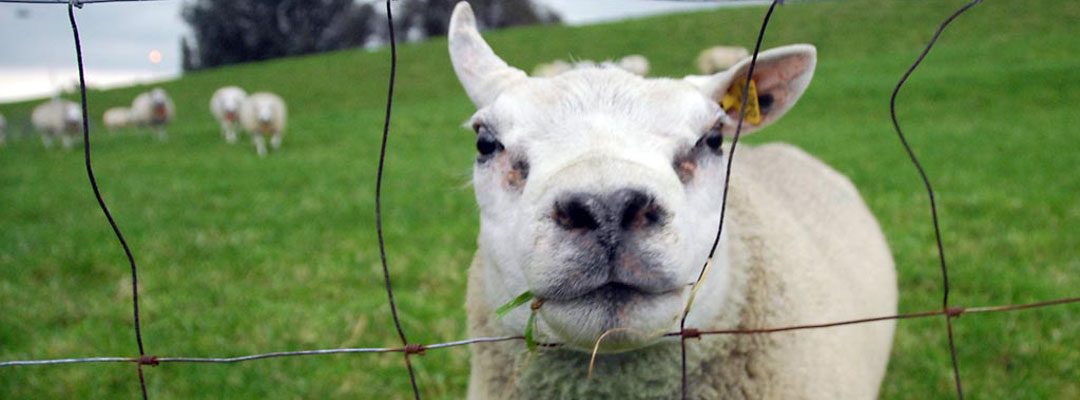Science and Values
Philip Kitcher: Authority, Responsibility, and Democracy
ABSTRACT Speaking at the official opening of the Rotman Institute of Philosophy, Dr. Philip Kitcher gave this lecture entitled "Authority, Responsibility, and Democracy." This was the first of two lectures, under the collective title, "Science in a Democratic Society", engaged with Kitcher’s ideas about the two forces of democracy and science, and how they interact [...]
Philip Kitcher: Alienation and its Dangers
ABSTRACT Speaking at the official opening of the Rotman Institute of Philosophy, Dr. Philip Kitcher gave this lecture entitled "Alienation and its Dangers". This was the second of two lectures, under the collective title, "Science in a Democratic Society", engaged with Kitcher’s ideas about the two forces of democracy and science, and how they interact [...]
Kyle Stanford: The Difference Between Ice Cream and Nazis: Evolution and the Emergence of Moral Objectivity
ABSTRACT Kyle Stanford delivered this lecture entitled, "The Difference Between Ice Cream and Nazis: Evolution and the Emergence of Moral Objectivity", where he examined the evolutionary function of moral projection. SPEAKER PROFILE Photo by L. Perniciaro Kyle Stanford has been a Professor in the department of Logic and Philosophy of Science at the [...]
Sandra Mitchell: GMOs and Policy in a Complex, Diverse World
ABSTRACT Dr. Mitchell’s lecture considers how both biological diversity and value pluralism thwart simple regulatory models for genetically modified organisms. For example, we talk about policy for BT modified plants, yet there are about 600 known strains of Bacillus thuringiensis and the effect of different strains on different host plants as well as the consequences [...]
Alison Wylie: A Plurality of Pluralisms – Collaborative Practice in Archaeology
ABSTRACT Dr. Wylie’s lecture focuses on examples of collaborations between archaeologists and descendant communities that are epistemically productive in ways that are systematically obscured by the sharply drawn conflicts of headline news. SPEAKER PROFILE Alison Wylie is a feminist philosopher of science at the University of Washington, Seattle. She works on epistemic questions raised by [...]
Nancy Cartwright: Evidence, Argument and Mixed Methods
ABSTRACT Dr. Cartwright’s lecture, Evidence, Argument and Mixed Methods, focuses on effectiveness predictions for illustration. Effectiveness predictions are predictions that well-defined policies will produce targeted outcomes in the present, as soon as they are implemented. Randomized controlled trials are touted as a gold standard for effective prediction claims – but there is a catch, which [...]
Nancy Cartwright: Wiser Use of Social Science, Wiser Wishes, Wiser Policies
ABSTRACT In Dr. Cartwright’s lecture, Wiser Use of Social Science, Wiser Wishes, Wiser Policies, she considers the rhetoric of blame and accountability with regards to social issues such as protection of children from domestic abuse. Amidst calls for best practice, and the insistence on implementing only policies that work, Cartwright questions whether policies that ‘work’ [...]
George Reisch: The Paranoid Style in American History of Science
ABSTRACT 2012 marks the 50th anniversary of the publication of Thomas Kuhn’s seminal book, The Structure of Scientific Revolutions. Reisch points out that it is no coincidence that the book was conceived, written, and published in America during the most stressful and anxiety-ridden years of the cold war. Reisch’s talk traces Kuhn’s influential book’s relationship [...]
Eric Schliesser: What Happened to Knightian (and Keynesian) Uncertainty Post WWII?
Dr. David S.H. Chu International Student Centre International and Graduate Affairs Building, Western University, London, Ontario, CanadaABSTRACT In this talk, Schliesser discusses the displacement of Knightian uncertainty from economics after 1945 by two new strategies. He will look at this discarded theory that could no longer be articulated, or even recognized, by the new theories that displaced it. Schliesser will also discuss the recent return to the concept of economic uncertainty [...]
Joel Lexchin: Those Who Have the Gold Make the Evidence: The Pharmaceutical Industry and Clinical Trials
Room 1145 - Stevenson Hall Stevenson Hall, Room 1145, London, Ontario, CanadaABSTRACT Pharmaceutical companies fund the bulk of clinical research and this funding can introduce biases into the research through methods such as influencing the choice of standards of comparison, only publishing positive trials, reinterpreting data submitted to regulatory agencies, ghostwriting, and the use of “seeding” trials. There is no evidence that any of the measures [...]
Helen Longino: Individuals or Populations: How Scale Matters
Dr. David S.H. Chu International Student Centre International and Graduate Affairs Building, Western University, London, Ontario, CanadaThis lecture will explore the difference between studying human behavior as an individual characteristic versus studying it as a group property. SPEAKER PROFILE Helen Longino’s teaching and research interests are in philosophy of science, social epistemology, and feminist philosophy. She is the author of The Fate of Knowledge (Princeton University Press, 2002), and many articles [...]
Peter Singer: The Most Good You Can Do: How Effective Altruism is Changing Ideas About Living Ethically
Great Hall - Somerville House Somerville House, Western University, London, Ontario, CanadaABSTRACT Effective altruism is built upon the simple but profound idea that living a fully ethical life involves doing the "most good you can do." Such a life requires an unsentimental view of charitable giving: to be a worthy recipient of our support, an organization must be able to demonstrate that it will do more [...]
Peter Singer: Animal Liberation, Forty Years On
Great Hall - Somerville House Somerville House, Western University, London, Ontario, CanadaABSTRACT Peter Singer's Animal Liberation, often credited with starting the modern animal rights movement, was first published in September 1975. In this lecture, the author assesses how well the argument has stood up over that period, and what progress has been made towards the changes in our treatment of animals that the book advocates. SPEAKER [...]
Evan Fraser: Food in 2050: The Challenge of Feeding 9 Billion
Wolf Performance Hall - Central Library 251 Dundas St, London, Ontario, CanadaABSTRACT Creating food systems capable of sustainably, equitably, and nutritiously feeding 9 billion people while dealing with climate change is one of the 21st century’s “Grand Challenges”. Meeting this challenge is about more than just producing enough - indeed, we already produce enough for everyone, but more than a billion are overweight while almost a [...]
Cordelia Fine: Let Toys Be Toys: The Science and Ethics of Gendered Toy Marketing
Wolf Performance Hall - Central Library 251 Dundas St, London, Ontario, CanadaABSTRACT The gendered marketing of toys is under considerable scrutiny, with consumer-led campaigns against it invariably giving rise to vigorous debates. Critics argue that gendered toy marketing is socially and developmentally harmful; defenders see it as reflecting and responding to boys’ and girls’ fundamentally different interests. In this talk, based on work co-authored with Charles [...]
Cordelia Fine: The myth of the Lehman Sisters? Sex, testosterone, and financial risk-taking
Room 100 - Physics and Astronomy Building Physics and Astronomy Building, Western University, London, Ontario, CanadaABSTRACT There is growing scientific interest in the role of testosterone in financial risk-taking – a topic of considerable public interest too, with suggestions that there is “too much testosterone on Wall Street”. Both research and debate is often grounded in an implicit model in which testosterone is presumed to be the proximal mechanism underlying [...]
Andrew Light: What Happened in Paris? How Differentiation Evolved to Create a Global Climate Agreement.
Room 2202 - Spencer Engineering Building Spencer Engineering Building, Western University, London, Ontario, CanadaABSTRACT Last December, after twenty years of apparent incremental progress, over 190 countries meeting under the auspices of the United Nations Framework Convention on Climate Change managed to create what promises to be a lasting international climate agreement. Debates continue however over whether the greenhouse gas mitigation commitments that parties brought to the table in [...]
Alison Gopnik: The Gardener and the Carpenter: What developmental science tells us about relations between parents and children.
Wolf Performance Hall - Central Library 251 Dundas St, London, Ontario, CanadaIn this Rotman Lecture, co-sponsored with Western Alumni and the London Public Library, renowned author Alison Gopnik asks us to think about parenting as a relationship. ABSTRACT Caring deeply about our children is part of what makes us human. Yet the thing we call "parenting" is a surprisingly new invention. In the past thirty years, [...]
Alison Gopnik: When children are better learners than adults are: Theory formation, causal models, and the evolution of learning.
University Community Centre, Room 56 1151 Richmond Street, London, Ontario, CanadaABSTRACT In the past 15 years, we have discovered that even young children are adept at inferring causal relationship. But are there differences in the ways that younger children, older children and adults learn? And do socioeconomic status and culture make a difference? I will present several studies showing a surprising pattern. Not only can [...]














